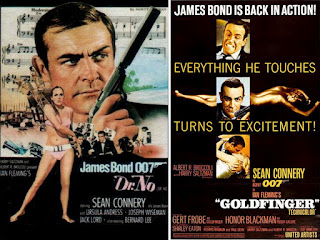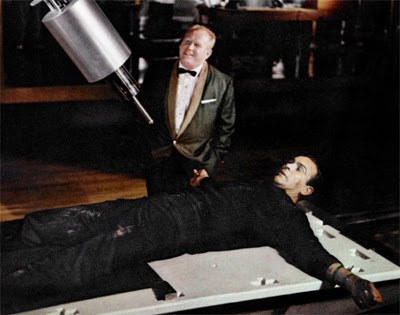This year's Halloween posts are all for movies seen at the Landmark Loews Jersey Theater this past weekend, the 26th-27th. I was planning to go with a different theme this year, but when I saw that the Loews was showing six movies in two days, I knew I had to take advantage of this somehow. I saw three of the six films, and between now and Thursday we'll get to all three, if a certain hurricane doesn't stop us...
10.26.12
I think I might be slightly more interested in horror movies these days if they weren't all so damn grim and serious. Fans seem to eat it up - how many Saw movies did they make? - I find it all off-putting. Say what you will about The Blair Witch Project, but there was a movie that knew how to sell itself, how to make it stand out from the pack. The selling of the "history" of the Blair Witch and the question of whether or not the "found footage" was real made me want to see it, and while I wouldn't recommend such tactics for every horror movie, at the least I'd want to know that this film had a sense of playfulness, or mystery, to it. That's still no guarantee that I'd see it, but it'd get my attention.
William Castle was a director who knew the value of such things. A former assistant to Orson Welles, Castle's directorial career spanned four decades, from the 40s to the 70s, but it wasn't until the latter half that he started coming up with wild promotional gimmicks for his films. How wild? How about glow-in-the-dark skeletons, nurses in the lobbies, or buzzers in seats to encourage screaming? In a time when, it must be said, film was competing with the new medium of television, he really went all out.
Friday night, the Loews showed Castle's film Homicidal as the first half of a twin bill, and they did a good job of recreating Castle's accoutrements. At the door they issued certificates entitling the bearer to a refund if the film is too scary for them. Within the film itself, there's a pause just before the climax, in which anyone too scared can leave and redeem their certificate, but it comes with a price: the bearer must sit out the remainder of the film in a specially constructed "cowards' corner," no doubt to be subjected to public shame and ridicule. The Loews had the booth set up in the lobby, but only one person took advantage of it, and I think it's safe to say that he was a ringer.
 |
| The Loews' version of the "coward's certificate" looked very similar to this. |
 |
| What the "fright break" looked like on screen. |

















































